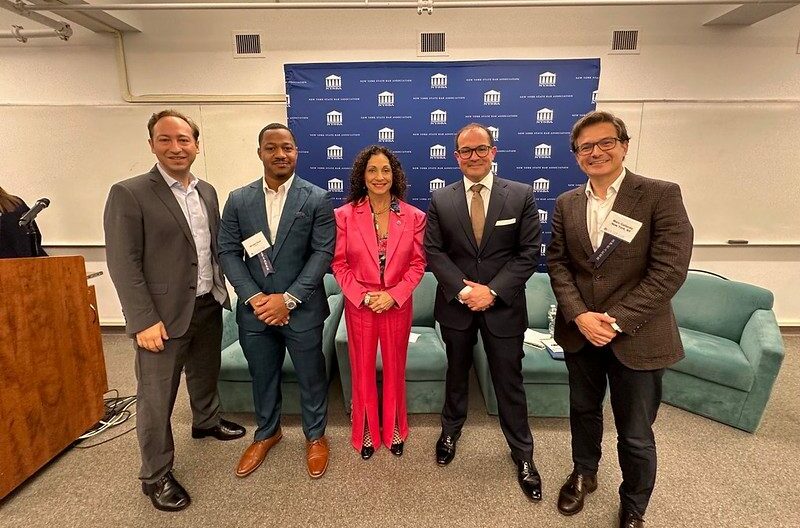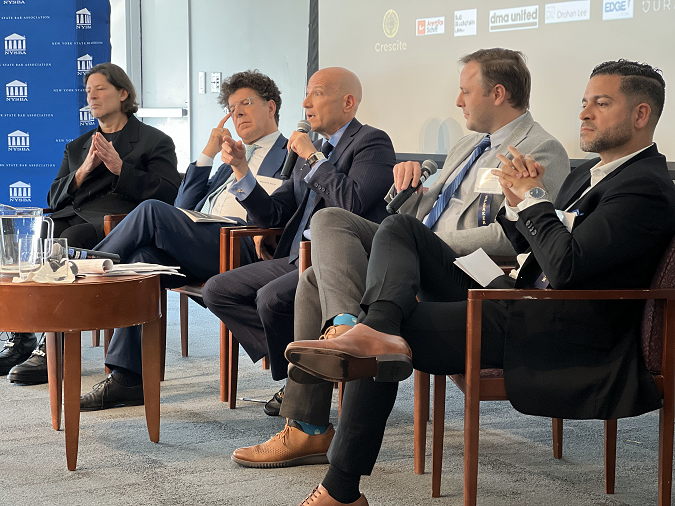Regulation of the Metaverse Has Prompted Many Questions
5.1.2023
 The next generation of technology that encompasses the Metaverse and Web3 has the power to impact how business is conducted internationally and throughout the legal profession. The lack of clarity regarding that regulation, however, is clouded by many factors, including the speed with which various jurisdictions have adopted governing procedures.
The next generation of technology that encompasses the Metaverse and Web3 has the power to impact how business is conducted internationally and throughout the legal profession. The lack of clarity regarding that regulation, however, is clouded by many factors, including the speed with which various jurisdictions have adopted governing procedures.
That was the general consensus of an expert international panel that spoke during Saturday’s opening session of the New York State Bar Association’s two-day conference entitled “Deep Dive Into the Metaverse: The First Global Law Symposium” that was hosted by New York University’s Metaverse Collaborative at The School of Professional Studies.
Daniel Stabile and Kimberly Prior, partners at Winston & Strawn, were the panel co-chairs. Arturo Banegas Masiá, partner at Akerman; Marc Gallardo, partner at RSM Spain and president of the Technology and Community Law Section of the Barcelona Bar Association; and Michael Clare, head of digital assets and fintech operations at Liongate Bahamas and founder of One X Solutions, comprised the panel that spoke for about an hour.
“We’re seeing more rules and regulations that are being created so some jurisdictions have accepted regulations, and some are more on the fence about them,” said Clare. “The ones who embrace it carry an attitude that this applies to us, and it allows us to operate in a safe space. And those that don’t want to embrace them, in my opinion, it is causing harm to themselves.”
Stabile offered that one of the biggest challenges is the relative freshness of the technology.
“Certainly, digital assets are a new technology, but they are not that new,” said Stabile. “I think some regulators could have invested more resources to understand the technology, but today there are some jurisdictions that are doing a better job than others. Digital assets themselves present unique difficulties in terms of regulatory treatment, and I think one of the reasons for that is that digital assets can be imbued with unique characteristics.”
As for the U.S., the regulatory framework is clouded due to how crypto currencies are defined, either as securities or commodities.
“The regulatory framework here in the U.S. is somehow unknown and somehow unstable. Sometimes the SEC says that crypto assets are securities and sometimes it says they are not. For instance, in 2018 the chairman (Jay Clayton) said they are not securities and will not be treated as securities. However, the new chairman of the SEC (Gary Gensler) is taking a more affirmative position and trying to include the crypto assets into those securities regulations,” said Banegas Masiá.
Clare closed the discussion by affirming his desire for more government rules.
“I will always say that we should invite rules and regulations to a certain extent because you want to have consumer protection, investor protection and those guardrails for recourse,” said Clare.
Prior to the event, attendees were able to download a POAP, an acronym for proof of attendance protocol, to gain an additional insight to an aspect of Web3. A POAP is a unique crypto badge or token that is used to record a commemorate events that is stored in a digital wallet, which may also be downloaded.
Go here to register and access this program on-demand.






